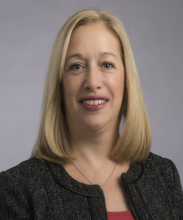ADRD Research Day 2025
Tuesday, April 22, 2025, 10 a.m.–4 p.m.
Discovery Building and via livestream
6/16/25 UPDATE: This event has passed. Watch recordings of the featured presentations below!
Please join us for a day filled with a diverse array of Alzheimer's disease and related dementias (ADRD) presenters and topics. Audience members will have the chance to network with researchers and vote for their favorite poster and lightning presenter. Lunch and refreshments will be provided.
The annual Alzheimer's Disease & Related Dementias Research Day is hosted by the Wisconsin Alzheimer’s Disease Research Center (ADRC). It is designed to encourage collaboration and promote scientific thought among faculty, students and researchers from a wide range of disciplines across the UW–Madison campus. We invite UW–Madison students, scientists and researchers from all areas to join us and learn about the amazing, important work being done on campus.
Event Recordings
Opening Remarks, "The Natural History of Amyloid PET Research at the UW ADRC" by Dr. Bradley Christian and "Why We Need Brain Banks" by Dr. Jeffrey Nirschl
"Looking Beyond Alzheimer's: The Rise of LATE and Other Hidden Pathologies" by Dr. Julie Schneider
"Creating Sustainable Community Partnerships in AD Research" by Gina Green-Harris and Research Day Award Winners
AGENDA
Presentations will be in the H.F. DeLuca Forum
The Poster Session will be in the Open Court
AM
9:30–10 — Registration check-in/poster preview
10 — Welcome and opening remarks
10:25 — Featured speaker: Bradley T. Christian, PhD, professor of medical physics and psychiatry, director of PET Physics, Waisman Brain Imaging Lab - “The Natural History of Amyloid PET Research at the UW ADRC”
- Learn more about Bradley T. Christian, PhD
- Image

Dr. Christian’s research focuses on developing and translating novel PET methods for the study of neurodevelopment and neurodegeneration, using novel radioligands to characterize neurotransmitter-protein interactions and how they are influenced by aging, development, genes, environment and drugs. He is a professor of medical physics and psychiatry and has been a collaborating member of the UW ADRC dating to the first amyloid PET scan on campus in 2007. There have now been > 6,000 PET scans acquired at UW investigating amyloid, tau, neuroinflammation, neurotransmitter and synaptic function, and metabolism along the AD-continuum. Aligned with his role as Associate Director of the Waisman Center IDDRC, Dr. Christian is currently a PI on the Alzheimer’s Biomarker Consortium – Down Syndrome (ABS-DS) project. This study includes over a decade of longitudinal measures that have provided valuable scientific information for understanding the relationship between AD biomarkers for amyloid, tau, neurodegeneration and cognitive decline.
11 — Lightning Presentations: Group 1
- Lightning Presenters Group 1
- Yang Yeh, PhD, postdoc in the Lamming Lab, Division of Endocrinology, Diabetes, and Metabolism, "High and Low Dietary Protein Intake in Alzheimer's Disease"
- Aaron Fredricks, BS, research specialist in the WBBL Biomarker Lab, Division of Geriatrics and Gerontology, "Proteomics at our fingertips: Coupling remote collection devices with NULISA multiplex panels"
- Ikenna S Odoh, MD, graduate student in the Okonkwo Lab, Division of Geriatrics and Gerontology, "The Association of Cardiorespiratory Fitness with Rates of Cognitive Decline in a Multiethnic Cohort at Risk for Alzheimer's Disease"
- Olivia Goulette, BA, master's student in the Speech-Language Pathology program, project assistant in the Cognitive Communication in Aging and Neurogenic Disorders Laboratory, "Associations Between Self-reported History of Traumatic Brain Injury on Longitudinal Cognitive and Speech Changes Linked to Alzheimer's Disease Risk Factors"
- Jovana Jovanovska, BA, graduate student in the Engelman Lab, Department of Population Health Sciences, "Characterizing Age at Onset of Alzheimer’s Disease Using Polygenic Risk Scores: A Multi-Ancestry Perspective”
11:30 — Poster Session: Part 1
PM
12:25 — Lunch in the DeLuca Forum and Open Court
1 — Featured Speaker: Julie A. Schneider, MD, MS, Department of Pathology, Department of Neurological Sciences, director, Alzheimer's Disease Research Center (P30); associate director, Rush Alzheimer’s Disease, Rush University Medical Center - "Looking Beyond Alzheimer's: The Rise of LATE and Other Hidden Pathologies"
- Learn more about Julie A. Schneider, MD, MS
- Image

Julie A. Schneider, MD, MS, is the Deborah R. and Edgar D. Jannotta Presidential Professor of Pathology and Neurological Sciences, the director at the National Institute of Aging supported Alzheimer’s Disease Research Center at Rush, and the associate director of the Rush Medical Center Alzheimer’s Disease Center. She completed her neurology residency at the University of Chicago and neuropathology fellowship at Emory University. Schneider is also certified in geriatric neurology and has a master’s degree in clinical research. In addition to directing the center, she leads clinical-neuropathology work for the Religious Orders Study, Memory and Aging Project and other studies. Schneider provides peer review for over 20 journals; is on three editorial boards, has over 500 peer-reviewed publications and six book chapters. She is an invited member of the National Advisory Council on Aging (NIA). She has served on numerous academic and industry advisory boards; has given lectures, nationally and internationally, and mentors junior scientists and clinicians. She also has extensive experience collaborating with researchers, participating in multicenter grants and initiatives, and partnerships with industry to advance the neuroscience, diagnosis and treatment of cognitive aging and dementia.
Schneider’s research explores age-related cognitive decline and neuropathology, with a focus on Limbic-predominant Age-related TDP-43 Encephalopathy (LATE), Hippocampal Sclerosis of Aging and Vascular Contributions to Alzheimer’s Disease, mixed, and other dementias. She leverages her expertise in neuropathology, neurology and epidemiology to advance discovery of mechanisms, risk factors, biomarkers and prevention/treatment for Alzheimer’s and other related dementias.
1:35 — Poster Session: Part 2
2:30 — Featured Speaker: Gina Green-Harris, MBA, director, Regional Milwaukee Office, Wisconsin Alzheimer's Institute, director, Health Center for Community Engagement and Health Partnerships (CCE), UW School of Medicine and Public Health, co-director, Just Research Program - "Creating sustainable community partnerships in AD research"
- Learn more about Gina Green-Harris, MBA
- Image

Gina Green-Harris is the director of the UW School of Medicine and Public Health Center for Community Engagement and Health Partnerships (CCE) in Milwaukee, as well as director of the Wisconsin Alzheimer’s Institute Regional Milwaukee Office, and co-director of the Just Research Program.
Green-Harris has expertise in the areas of health equity, diversity and inclusion, cultural competency, leadership development, and research. She has received numerous awards and recognition for her work, including a 2019-2020 UW-Madison Outstanding Woman of Color Award. In September 2020, she was appointed to chair the Governor’s Health Equity Council.
Green-Harris received her Master of Business Administration from Franklin University in Columbus, OH and her Bachelor of Science at Central State University in Wilberforce, OH. She is currently a doctoral candidate at the University of Wisconsin–Madison in the ICTR Clinical Investigation Program and a Center for Health Disparities Research (CHDR) trainee.
2:55 — Lightning Presentations: Group 2
- Lightning Presenters Group 2
- Virginia Mathu, BS, graduate student in the McLellan Lab, Department of Surgical Sciences (DSS) and Department of Ophthalmology and Visual Sciences (DOVS), "Visual Function in Comorbid Mouse Models of Alzheimer's Disease and Glaucoma"
- Samriddhi Dube, BSc, research intern at Center for Health Disparities Research, "Associations between Early-Life Area-Level Disadvantage and Plasma Markers of Alzheimer’s Disease Pathology and Neurodegeneration – A Mixed-Longitudinal Study”
- Isa Hayde, undergraduate student double majoring in Genetics and Genomics and Life Sciences Communication in the Clark lab, Division of Geriatrics and Gerontology, "A Step Ahead: PET Scans and Personal Action”
- Vaibhav Vemuganti, MS, PhD candidate in the Rey lab, Department of Bacteriology, "Gut bacteria derived imidazole propionate potentiates Alzheimer's disease"
- Jennifer Landeta Vidal, MPH, Wisconsin Alzheimer's Institute, "Education to improve primary care dementia diagnosis and care: The Wisconsin Alzheimer's Institute"
3:25 — Awards celebration
3:45 — Closing/appreciations




